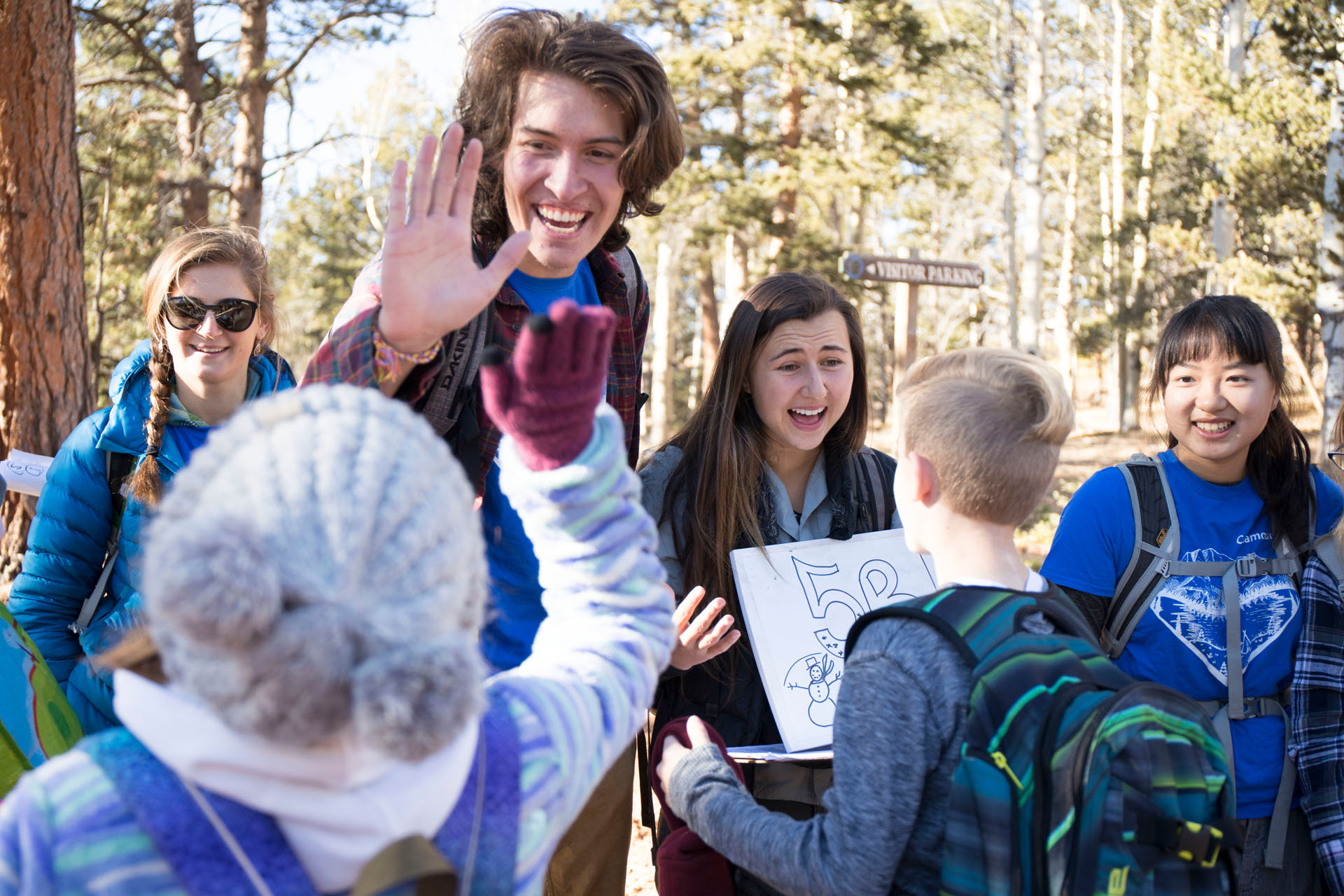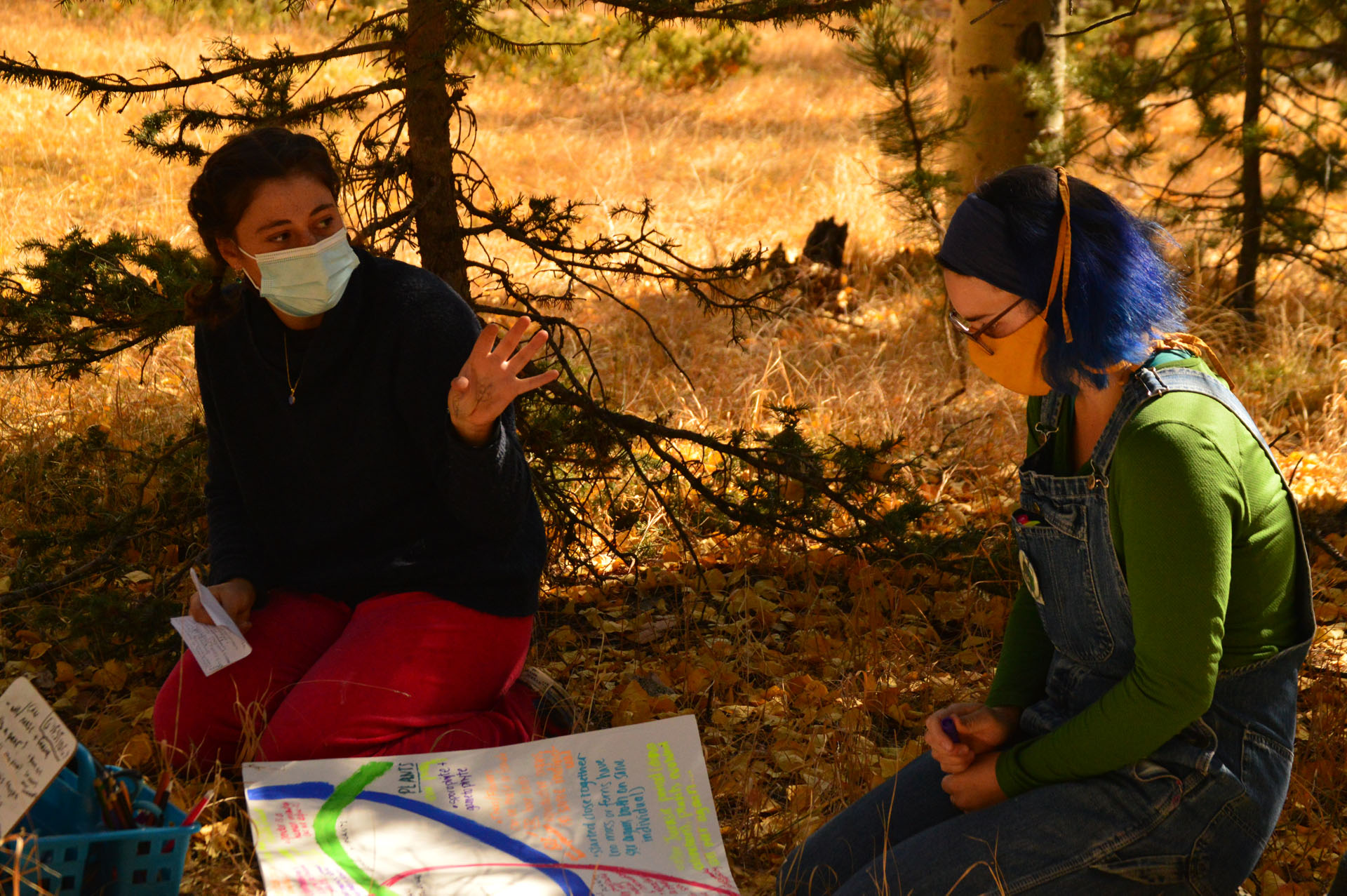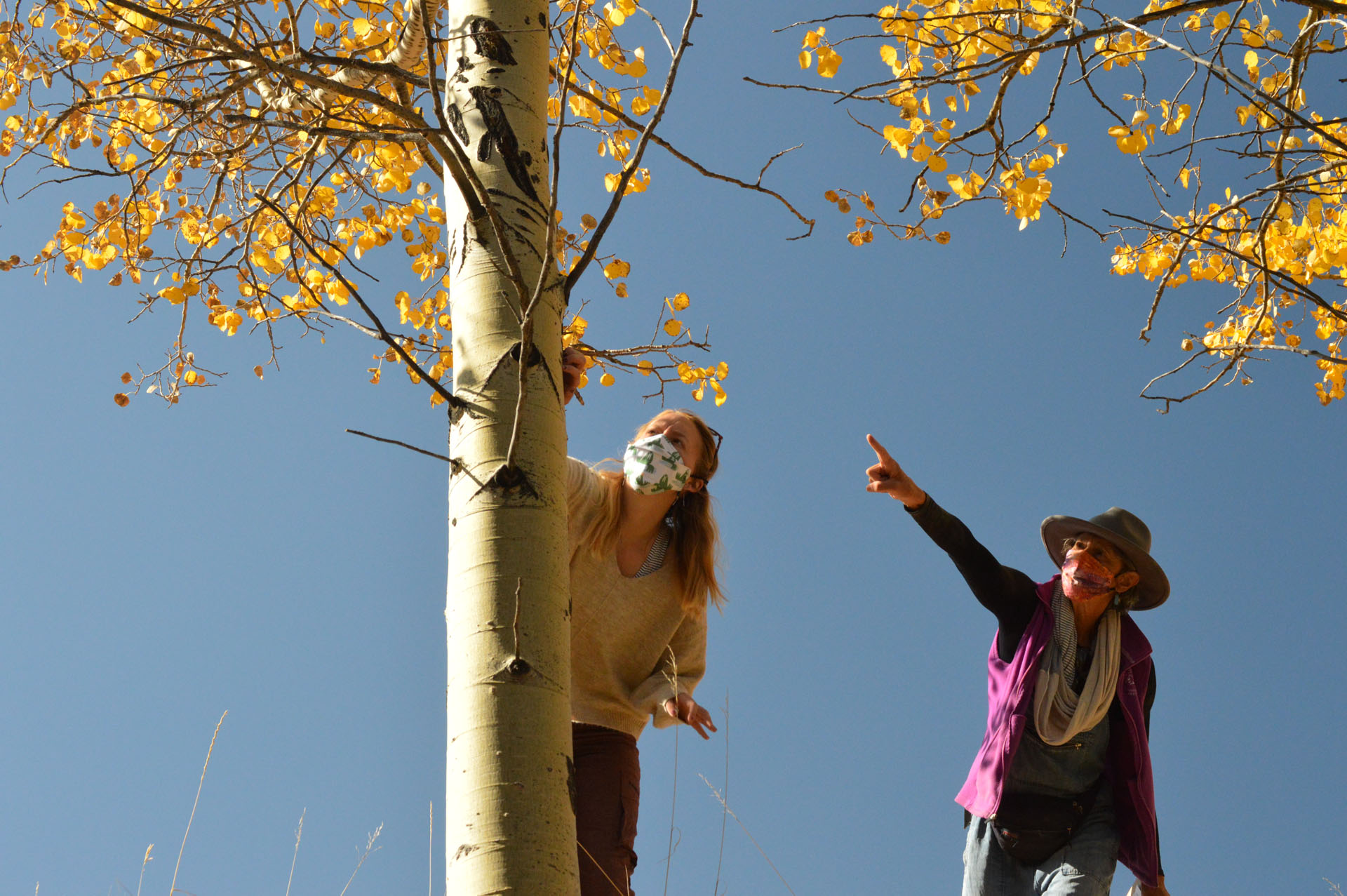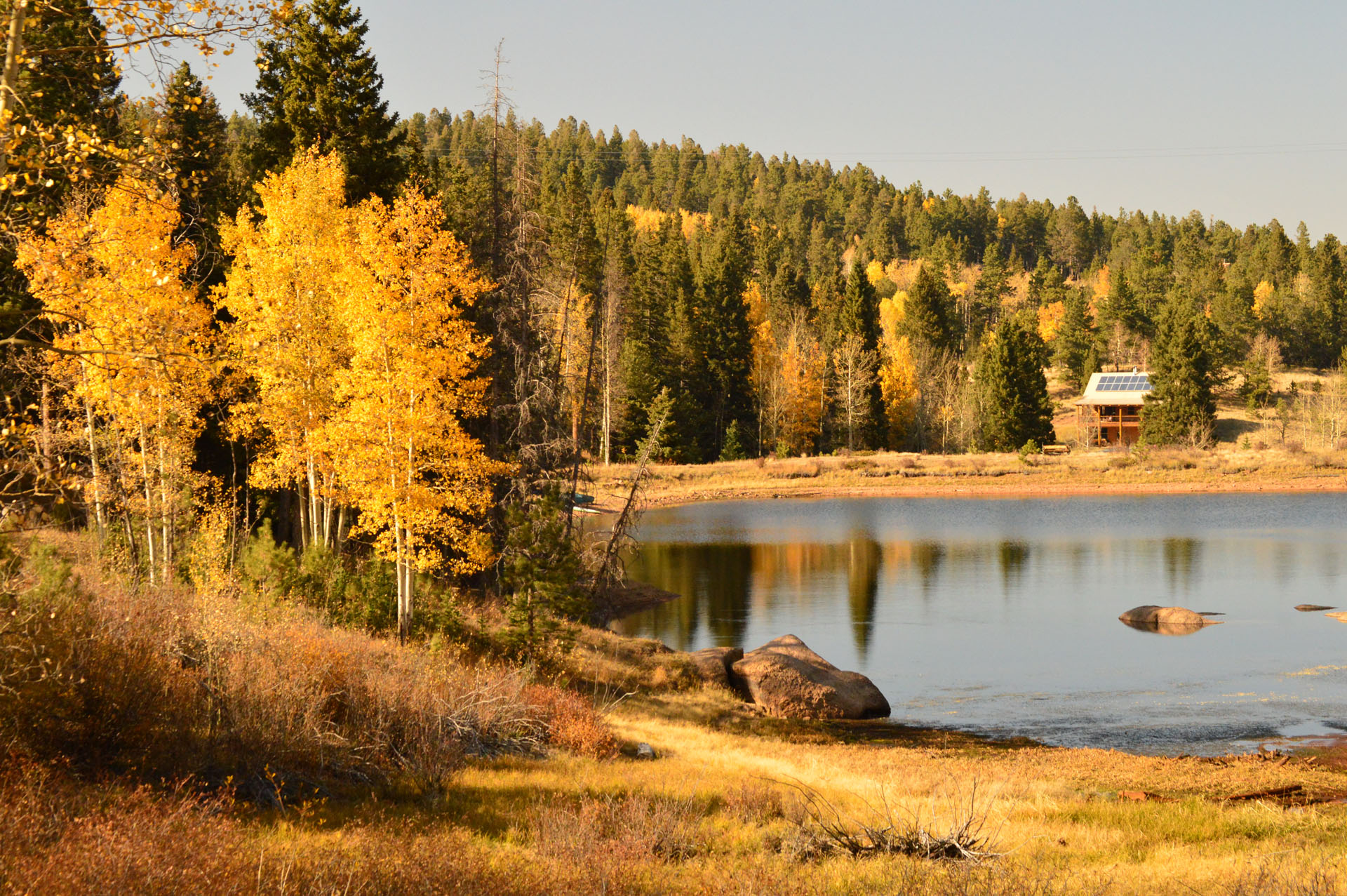Many students come to CC for the Block Plan. But a growing number of prospective students – and for the first time this year, exchange students -- are drawn to CC’s nationally acclaimed Teaching and Research in Environmental Education Semester, a leading program in environmental education. Founded by CC Professor Howard Drossman and his wife Julie Francis, the program is now recruiting students for its seventh year in Fall 2021.
“We started TREE because environmental education should be an experiential process where we learn by helping our students develop over a whole semester while forging bonds with each other and with nature.” Julie and Howard share. They make this vision a reality each fall with a small group of students at the Catamount Center mountain campus in Woodland Park for the TREE Semester.
TREE is a fully immersive teaching and learning experience where students complete nearly 100 hours of teaching, with the potential to earn a Colorado Alliance in Environmental Education teaching certification after submitting their portfolio. In its first six years, 92% of TREE students have been certified, and ⅓ of this group have earned certification at the highest level in the state. TREE is just one of two programs in North America to receive the Distinguished Undergraduate Environmental Education certification from the North American Association for Environmental Education. TREE also won CAEE’s 2018 Innovative Program Award.
The Catamount Center is located 25 miles from CC’s campus. Students live in dorms on the property, but their classroom extends beyond, with most classes taught outside on the 177-acre property. They spend their days applying theory to practice in the field, balancing their immersive studies with small community living over four blocks. Each week throughout the semester, students from Columbine Elementary School in Woodland Park spend their school day at Catamount campus learning about ecology, physical science, and social studies from the TREE undergraduate students. During Block 3, TREE students spend an immersive week teaching students from Tesla Educational Opportunity School in Colorado Springs at the Catamount campus and in the Tesla classrooms.
While many TREE participants have majored or minored in education and environmental studies, Drossman emphasizes that the skills students gain through the program are relevant across disciplines, and the curriculum is inclusive and broad. The educational approach is guided by the “Seven-S” curriculum model: “stewardship, science, spirit, society, systems, service, and sustainability.” A number of TREE alumni have gone on to become teachers, but Drossman emphasizes that the impact is broad and extends beyond the classroom. TREE develops leaders in environmental and outdoor education.
Fall 2020 was radically different for higher education across the nation as college campuses pivoted to virtual formats and minimized in-person instruction to mitigate the spread of the Coronavirus. Because of the small cohort and geographically isolated campus with ample outdoor space for socially distanced in-person instruction, TREE Semester completed its first three blocks in-person, with no COVID-19 cases. But an essential part of TREE -- weekly elementary school visits to the Catamount Center -- was cancelled.
In the absence of in-person instruction, TREE students developed virtual curricula for the public school teachers to help their students access meaningful outdoor educational experiences. And to ensure that CC students still gained robust classroom instruction experience, they role-played; professors and students “acted” as elementary school students while their peers gave 16 hours of outdoor instructional lessons over two weeks.
“I know it sounds weird that we were teaching each other, and acting like kids. It took a few days to get used to,” says Chris Tobin ’22. “But we got to observe one another and get a ton of feedback from professional educators, and it’s rare for undergraduate students to get this kind of one-on-one mentorship.” Since many TREE students want to pursue a career in education, they also know that there is plenty of time for teaching to come.
Students reflect that their days were full but fulfilling, and professors emphasized the importance of developing a sense of place through free time and exploration. Class instruction began at 9 a.m. daily and ended at noon or 3 p.m. on lab and teaching days. Afternoons were free, giving students time to hike, explore the surrounding backcountry – maybe spot a moose or a bald eagle -- and relax. They gathered again in the evening for homework, group projects, or to watch a movie or play cards.
Because the group was so strictly self-isolated as a pod and remained at Catamount for the first three blocks of the program, there was even more time for community bonding. Chelo Barton ’18 was a postgraduate teaching fellow for TREE this past fall and participated in the program as a student when she was a junior at CC. “The sense of community we developed this year was that much deeper because we spent so much quality time – both learning together and simply spending free time as a group every day.”
In a “normal” year, students can leave the TREE campus to return to CC or plan their own trips. This year, they had to stay put. “This ended up being a huge silver lining,” shares Kara Sun. “I left TREE with classmates who became close friends.” Kara was TREE’s first exchange student, who took the semester off from her studies at Carleton College to attend the program.
This was also the first year of TREE for Juan Miguel Arias ’12, a new Riley postdoctoral scholar in the Education Department, whose Ph.D. focused on youth development, equity, and inclusion in environmental education. Arias co-taught TREE courses throughout the semester and helped to reimagine a justice-focused curriculum that explored the intersections of history, culture, power, and the natural environment.
Much remains uncertain for college campuses in light of the ongoing pandemic. But TREE Semester students completed a successful in-person semester even at the height of the pandemic, and the professors are optimistic that no matter the circumstances, students will continue to enjoy a challenging and meaningful educational experience.
“If you’re an optimist, apply,” Tobin says. “And if you’re a pessimist, that’s even more reason to apply. I am so grateful to have attended a safe in-person program. It was truly the best and most ideal way to spend COVID!”
The deadline to apply for the Fall 2021 TREE Semester is April 1, 2021. For more information, contact Howard Drossman at hdrossman@coloradocollege.edu or apply on Summit.









